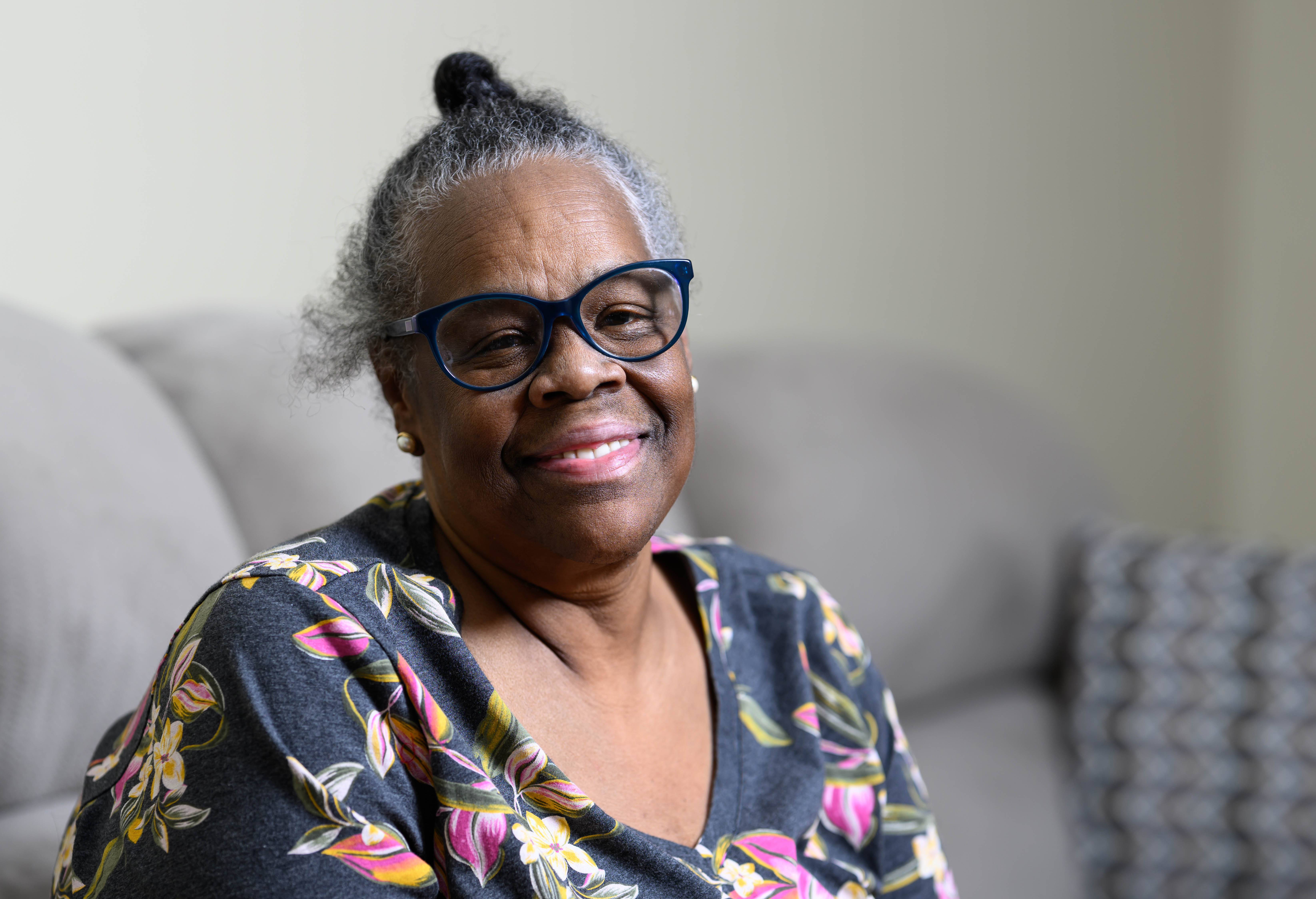May 7, 2024
Celebrating a kidney transplant success
To Anita Payne, kidney disease seemed overwhelming and a little scary — with monthly doctor visits and labs and an uncertain journey ahead.
That changed when she got a kidney transplant, with the guidance of a navigator at her telehealth service.
“When you have kidney disease, it’s helpful to have somebody to talk to about your options and what to expect, and Rachel Eaton at Square Knot was that person for me,” Payne said.
Payne’s Blue Cross Blue Shield of Massachusetts Medicare Advantage plan had partnered with Square Knot to offer support and guidance at no cost to members with advanced chronic kidney disease.
Starting in 2022, Payne met regularly via video visit with Eaton, who also had had a kidney transplant, and Dr. Eliot Heher, a nephrologist and founder of Square Knot. They helped her understand her lab results and kidney function, and know what to expect before she began dialysis, a treatment that manually performs the functions of the kidneys.
They also encouraged her to get on the transplant list at her local hospital.
“Researchers have found that long-term survival for kidney disease patients who have a transplant is significantly better compared with patients who are eligible for a transplant but remain on dialysis,” Heher said. “Square Knot’s goal is to improve outcomes for people with chronic kidney disease like Anita by facilitating a smoother start to dialysis and helping to move as many people as possible to a transplant.”
Payne, a 62-year-old mother of two from Chicopee, Mass., got her kidney transplant in October 2023, and has been on the road to recovery ever since.

What is kidney disease?
More than 37 million Americans have chronic kidney disease, a condition in which the kidneys can’t filter out toxins, waste or excess fluid from the blood as well as they should.
Your kidneys also make hormones that help control your blood pressure, maintain a healthy balance of water, salts, and minerals, make red blood cells, and keep your bones strong and healthy.
If your kidneys stop functioning well, nerves, muscles and other tissues in your body may not work normally. Serious, potentially fatal, illness can follow, including heart disease and stroke.
“For many, chronic kidney disease is a silent disease, undetectable unless you have a blood or urine test, with symptoms that often don't appear until the kidneys are badly damaged,” said Dr. Ashley Yeats, a physician who is VP of medical operations at Blue Cross Blue Shield of Massachusetts. “Patients often don’t understand what they should be doing to manage it. In fact, many people don’t really know what the kidneys do."
Square Knot provides valuable education and support in a way that’s convenient to our members

Dr. Ashley Yeats
“A lot of patients like Anita are in a vulnerable position,” Eaton agreed. “We provide as much support as possible because we know it can be a difficult process.”
Treatment options
People diagnosed with chronic kidney disease regularly visit their primary care provider for help monitoring their health, as well a nutritionist for help managing their diet. In advanced cases, they may see a nephrologist, a specialist in kidney disease who tracks how well the kidneys are working. Managing blood sugar and blood pressure can help keep kidneys functioning well.
If chronic kidney disease progresses to stage 5, or “end-stage kidney disease,” patients are more likely to require treatment. This could include dialysis or a kidney transplant from a living or deceased donor, which offers the best outcome for patients with chronic kidney disease.
A life-changing transplant
Payne said the days following her surgery were rough, but now, “I’m feeling so much better. I’m doing really good.”
Eaton is in awe of Payne’s strength. “When I first spoke with Anita, I was struck by her toughness and fortitude,” she said. “Anyone who goes through dialysis and transplant like her has to be tough and persevere. I really admire her.”
Payne continues to speak with Eaton every three weeks and likely will continue to do so as she manages her condition after the transplant.
It was so helpful to speak with people who understand what you’re going through and can guide you through the whole process
said Anita Payne
Did you find this story informative?
All Coverage content can be reprinted for free.
Read more here.
PHOTO OF ANITA PAYNE BY CHRIS EVANS

